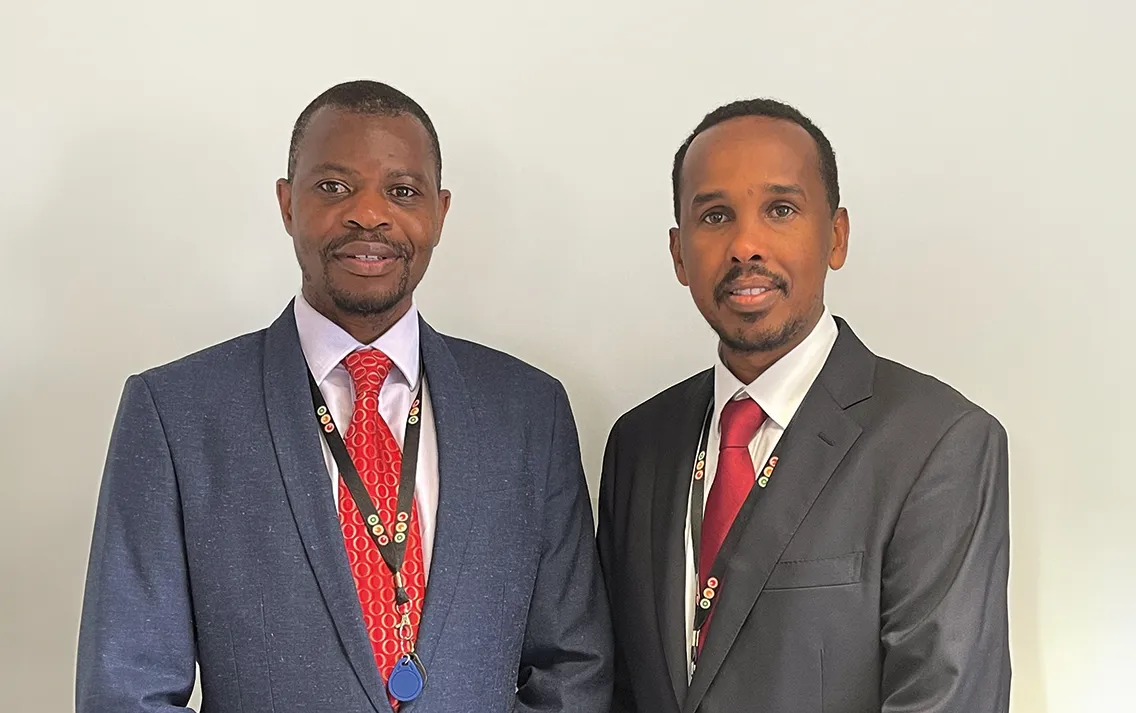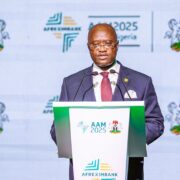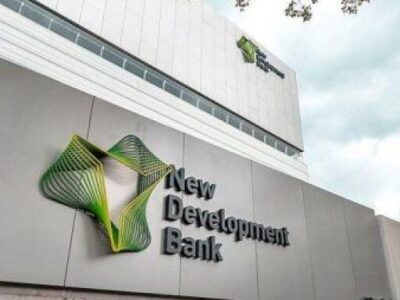
With annual revenues over $100m, more than 1,000 people on the payroll and private equity firms knocking on the door, the First Response Group has perhaps surpassed the ambitions that Edgar Chibaka (above left) and Jamal Tahlil (above right) set when they first conceived the idea. Working as security guards for adjoining buildings in 2007, Chibaka and Tahlil, both immigrants to the United Kingdom from Africa, would meet and chat during their breaks. They found a common dissatisfaction about their working conditions and a belief that they could do a better job running a security firm themselves. Some 17 years later, that bet has paid off.
Chibaka had come to the UK to pursue a chartered accountancy programme, but found the profession to be too staid and routine. He followed that up with an MBA and a course in project management. But it was when he met and teamed up with Tahlil that he found his improbable journey truly began. “We started with virtually nothing,” he recalls. Tahlil, who had come in as a refugee from Somalia, had a credit card and with that, the pair rented a little office above a kebab shop and threw themselves into the business.
The early days were predictably tough. With no track record and no connections, it was hard to get a foot in the door. One incident was particularly galling. “We went there with our files, insurance and brochures and they asked us to stand and make our case while they sat and had their nice coffee. We never had the chance to sit or even show them our brochures.”
Their persistence however would soon pay off and they managed to get some clients, among them Network Rail, managers of Britain’s railways. “We offered them reactive guards. So whenever there was a strike or if someone called in sick, we would come in with replacements.”
Where the money is
The strategy, which Chibaka says the company still applies today, was to focus on construction, infrastructure and utility companies. “The notion was that companies in these sectors have money and can pay the bills. The highways agency has money because we all pay our road tax. The gas and water companies have money because everyone has to pay their bills.”
From the beginning, Chibaka and Tahlil allocated responsibilities to suit their unique strengths. Chibaka took on the role of chief executive officer, focusing on strategy, marketing and the company’s finances. Tahlil handled the operational role, building and growing the network of agents. “He is weak where I am strong; I am weak where he is strong. We made sure that I do not overreach into his area because I would do a bad job.”
A client-focused approach has on occasion allowed them to win bids over more established players in the business, such as G4S. Chibaka says this was how they won the tender for event security at London’s famous Wembley Stadium. “We listened more to the clients, understood their pain points and the journey they were on. They wanted a good partner who won’t just come and tell them how it should be done.”
This agility has defined the growth of the group, which has evolved from just providing physical security to electronic security, cleaning, pest control and grounds maintenance.
“I think we have a contract that is just one hour a week and another that is just two hours. But I tell the guys to do it just as well because they could have another need. They might ask us to come and look at their air-conditioners or boilers.”
The group now also includes an engineering company to cover these services. Initially, they tried to build one in-house; but Chibaka says it made more sense to buy a struggling firm and turn it around. Similarly, when they realised how much they were spending on electronic security devices, they decided to build the hardware themselves. With a $2.6m fillip from the bank, they set up an in-house division, tripling their profits.
Private equity beckons
These results have caught the attention of private equity (PE) funds and the company is in active talks with a number of private equity houses. One of these could take up to 40% in the group, with a view to exiting in three to five years after boosting its revenues to make it an even better buy for another investor. Chibaka says the muscle that a PE investment could bring in would help grow the company beyond the current projection of $300m in three years. “We can easily accelerate this to probably half a billion. And I think they might end up saying, “if it’s growing this good, we are not going to exit at three; we might exit at five.”
Chibaka observes that while some PE houses “essentially want to run the business and take over your strategy, others may place one person on the board and one in the day-to-day operation and that’s it”. Though Chibaka is now not involved in the day-to-day running of the business – he describes his role as “ambassadorial” – he is keen to preserve the culture of the company.
Chibaka recalls that when senior managers joined the company, it took them some time to adjust to that culture. After being talked into making a pay advance to a worker, which facilitated a winning bid, one would come to understand the group’s philosophy: “if a cleaner can’t go and do a job because they don’t have a bus pass, the best thing I can do is give them the bus pass because if I don’t, I’d have a bigger problem with the client and can even lose the contract.”
It is an approach that the Malawian national says is firmly rooted in the African origins of the founders, but is also the heart of modern corporate culture, he argues.
“Any leader today who is not emotionally intelligent can’t do a good job.”
Into Africa
It is not surprising that the company is expanding into Africa – despite losing about $3.9m on an abattoir in Ethiopia, which Chibaka has taken on the chin. “The world of business is like that. When you lose, you take your lessons. So, we’ve had some ventures which were not very successful, not only in Africa, but also in Qatar.” An off-airport parking lot in Manchester, which was essentially a bet on the North African tourism sector, was also wound up after the sector suffered from the effects of the Icelandic volcano Eyjafjallajökull sending plumes of jet-unfriendly ash across Europe in 2010, and then the Arab Spring.
Despite the Ethiopian setback, which he attributes to strategic mistakes as well as timing, Chibaka is very much bullish on Africa. “Three weeks ago I was in Uganda, Tanzania and Kenya. We are looking at security opportunities across the continent and there are just too many.”
In Malawi, the very country he left nearly two decades ago, those opportunities are already being tapped. In addition to a security business, Chibaka has also staked out a position in the financial services sector. “I bought a small microfinance institution, which we’re trying to scale up now. And hopefully in the next five years, we should be able to apply for a banking licence.”










Comments